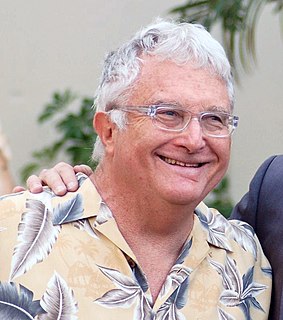A Quote by Randy Newman
I like science - geography, meteorology, cosmology.
Quote Topics
Related Quotes
People look down on stuff like geography and meteorology, and not only because they're standing on one and being soaked by the other. They don't look quite like real science. But geography is only physics slowed down and with a few trees stuck on it, and meteorology is full of excitingly fashionable chaos and complexity. And summer isn't a time. It's a place as well. Summer is a moving creature and likes to go south for the winter.
GIS, in its digital manifestation of geography, goes beyond just the science. It provides us a framework and a process for applying geography. It brings together observational science and measurement and integrates it with modeling and prediction, analysis, and interpretation so that we can understand things.
I've stuck to the same things for twenty years. I try to look like a slightly edgy geography teacher. Like what a geography teacher looked like when I was in school. Cords, sensible shoes and glasses. I never liked geography much as a subject though. In fact the only geography teacher I can remember from school was a woman who had a moustache.
John Hall, my geography teacher at school inspired me to a lifelong interest in geography and a curiosity about our world which has stayed with me through my life. Geography is a living, breathing subject, constantly adapting itself to change. It is dynamic and relevant. For me geography is a great adventure with a purpose.
Lest we forget, the birth of modern physics and cosmology was achieved by Galileo, Kepler and Newton breaking free not from the close confining prison of faith (all three were believing Christians, of one sort or another) but from the enormous burden of the millennial authority of Aristotelian science. The scientific revolution of the sixteenth and seventeenth centuries was not a revival of Hellenistic science but its final defeat.


































